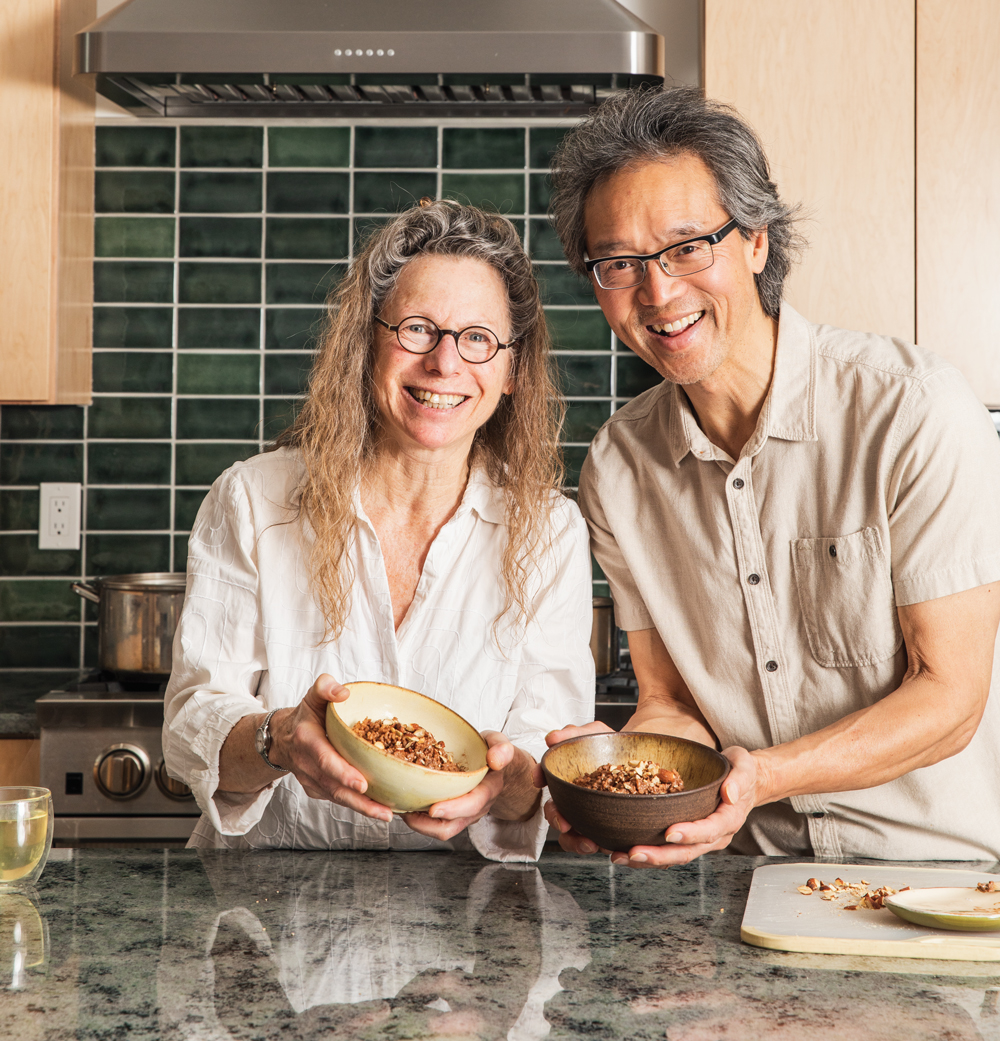Kenneth Lee, co-founder and former co-CEO of Lotus Foods, has more than 25 years of experience creating supply chains with and for small holder rice farmers in developing countries. He has placed an emphasis on organic, fair trade and regenerative practices to mitigate climate change, preserve rice biodiversity and promote farmer prosperity. Lee co-led the company from its grassroots start in the Bay Area to a multi-million-dollar company with products distributed across North America.
Caryl Levine, co-founder and former co-CEO, led Lotus Foods’ marketing and sales, with oversight for image and positioning of the brand, development of packaging, merchandising and product innovation. Lotus Foods’ specialty rice and rice-based products have received many awards from the Specialty Food Association and Natural Products trade groups. Lee and Levine together and separately have been the recipients of numerous prestigious awards for their pioneering leadership and vision for advocating for a more sustainable and equitable food system. Both founders remain on the company board.
Question: Your company imports Forbidden Rice. What is it, and what is its nutritional value? How is it superior to other products?
Lee: Our black rice, which we began importing in 1995 and registered as Forbidden Rice, is a distinct variety of rice cultivated in the northeast region of China. In Chinese history black rice is known to have been offered as a tribute to the imperial court, likely due to its rareness, unique flavor and purported health benefits. Research over the past couple of decades has shown that pigmented rice like black rice and red rice contain beneficial antioxidants. Black rice also tends to be higher in protein.
Question: The company states that its heirloom rice help rice biodiversity, increase farm incomes and improve sustainability. How is that achieved?
Lee: Until the introduction of modern agriculture in the 1960s, which promoted monocultures of new seeds, farmers cultivated tens of thousands of different rice varieties. This genetic diversity, which enabled rice to thrive in so many ecosystems, is also key to farmers being able adapt to climate change. Unfortunately, modern varieties have largely displaced local rice varieties, many of which had unique nutritional and culinary qualities. By providing market incentives like organic and fair-trade premiums for heirloom varieties, farmers are encouraged to continue their production. The premiums boost their incomes. Since 2009 we’ve also been sourcing rice from farmers who grow rice using regenerative practices known as the System of Rice Intensification or what we call More Crop Per Drop. Using their traditional seeds and with 50 percent less water, 80-90 percent fewer seeds, and no agrochemicals they can increase yields 25-100 percent. Many consumers are not aware that conventionally grown rice contributes to global warming. Flooded paddies are a major source of methane. With SRI practices, which promotes soil health, rice plants are irrigated only intermittently. This also enables them to continue growing rice where water is becoming scarce.
Question: Lotus Foods stated that it is also interested in empowering women. How does the company work toward that goal?
Levine: Yes, this is an issue that’s especially important to me. Women are the backbone of our global food system. Most food around the world is still being produced on small family farms, with women providing the lion’s share of labor. Particularly, as men often must find jobs elsewhere to supplement family income. Rice is physically grueling to produce, with women standing ankle and knee deep in muddy water for weeks on end as they transplant rice. The water can harbor mosquitoes and other disease vectors and they’re permanently bent over, so have lots of chronic back pain. With SRI, women have many fewer and lighter seedlings to plant, and they use a simple weeder that they push through the rows of rice in an upright, not bent-over, posture. So, they can get the work in the fields done faster and with less impact on their bodies.
Question: What is Jubilee Justice and how is Lotus Foods involved with it?
Levine: A chance meeting in 2019 between me and Jubilee Justice Co-founder and President Konda Mason developed into the Jubilee Justice Black Farmers Rice Project. Since introducing Konda to the regenerative rice-growing method, the System of Rice Intensification, that Lotus Foods calls More Crop Per Drop, and connecting her to some of the world’s leading technical experts in implementing SRI, the Black Farmers Rice Project now includes farmers in four southern states. It also includes a five-acre experimental plot at the Project’s base in Alexandria, LA to determine best practices, and a state-of-the-art rice mill, making it the first Black cooperativerice mill in the country. The goal is to provide Black farming communities with sustainable, regenerative practices, cooperative ownership and financial security in the whole value chain of their crops.
Ken@lotusfoods.com
Caryl@lotusfoods.com
